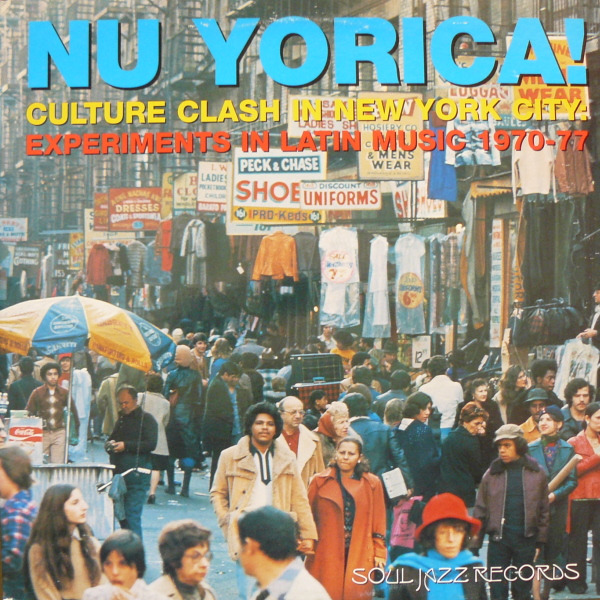I would like to connect the record i introduce you here to a good book about music called “Music Genres and Corporate Cultures” where the same record is mentioned to show the reader the problems that the main stream music industry have with the matter diaspora culture and translate the very meaning of that culture and it´s consequences in the music business.
“Music Genres and Corporate Cultures, By Keith Negus explores the seemingly haphazard workings of the music industry, tracing the uneasy relationship between economics and culture; `entertainment corporations’ and the artists they sign. Keith Negus examines the contrasting strategies of major labels like Sony and…”
“…To illustrate this issue I will select just one example from a long history of this type of activity as an illustrative case that enables me to make a number o points in relation to the argument I am developing here. I will refer to the double Record compilation of recordings issued in 1996 by the London-based Soul Jazz Records and entitled Nu Yorica! Culture Clash in New Yourk City: Experiments in Latin Music 1970-77. This is a compilation of tracks licensed from a number of different small companies and includes recordings by Cortijo, Eddie Palmieri, Grupo Folklorico and Cachao, among others. It comes with a many pages booklet that provides detailed profiles of the musicians and tracks an educative, informative and critical text that addresses the reader in a way that is rare in the packaging of commercial LPs. The booklet clearly tries to frame how the listener should appreciate the musicians that is presented. First, it provides considerable historical context, explaining how a diverse group of musicians came to be making Latin music in New York during the 1970s, with distinct sections about New York´s immigration history, Puerto Rico´s music and relationship to the US, and Cuba and the development of Afro-Euro Cuban music. The booklet also contain a particular argument about the multicultural interaction that has resulted in the meeting of musical traditions, and specifically connects this to the music industry´s difficulty in dealing with this and its aesthetic consequences. So, for example, the reader is presented with a particular critique of the salsa label: “The main problem with the term “salsa” is that, although unifying a music for Latin America, it didn´t unify the Latin music of New York.” Detailing the diversity of musicians playing “Latin music” (Afro-American, Italian-Spanish, Afro-Filipino) the booklet argues that “many of these musical experiments have become lost over time, slipping through the gaps between salsa, jazz, funk Latin jazz and soul…”
Source: Routledge is the world’s leading academic publisher in the Humanities and Social Sciences.
Nu Yorica! Culture Clash in New York City
We know a lot of records with this popular kind of music with all the stars from that time Ricardo Marrero, Cortijo y Su Combo, Ocho and many more. The world melting pot for all diasporas in this world, from the African one till to the Jewish, trough the Afro-Latin-Caribic-Brazilian diaspora. This diaspora combination has brought out the most rhythms in the history of the music and everything musicians are doing in the actual days is, was or will be influenced by those movements. Check it out and come visit us in the next event, live and strictly vinyl.
Garra




Social